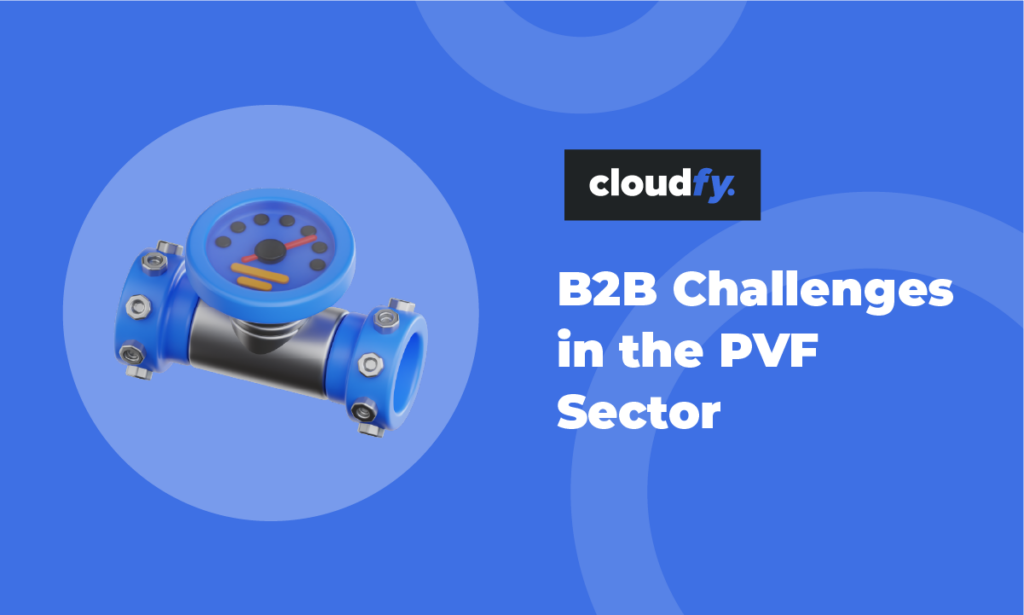Enterprise resource planning (ERP) is essential to the success of complex businesses. There’s no doubt that successful B2B ecommerce companies are in this category.
The tool you choose to manage and integrate your processes has to be right for you because it affects every aspect of your business; finances, supply chain, operations, reporting, manufacturing, and human resources.
We decided to take a look at two market leading ERP systems and how they could benefit your business when integrated with Cloudfy; NetSuite and Microsoft Dynamics 365.
ERP – where do you start?
For many businesses the basic tools are finance and operational systems, but as standalone solutions they aren’t ideal to take your B2B ecommerce business to the next level.
Modern ERP software brings these and all your other critical processes together in one seamless system. Each department can see what’s happening in other parts of the business, allowing them to collaborate and support each other.
See how these solutions could meet your business needs.
| ERP Solution | NetSuite | Microsoft Dynamics 365 |
|---|---|---|
| Business type | Great for small businesses looking for deliver powerful,enterprise-level B2B ecommerce and top-quality user experiences. | A good choice for businesses starting on the road to B2B ecommerce success or stepping up to the next level and looking for a Cloud-based enterprise (ERP) and customer relationship management (CRM) systems with powerful functions. |
| Hosting | NetSuite is Cloud-based. | 80% of businesses using Dynamics 365 have chosen the Cloud-based version. There is also an on-premises Enterprise Edition for larger businesses. |
| Market position | Recognized as one of the world’s most widely used ERP systems. | Recognized as one of the top-tier ERP solutions. |
| Function | Processes including order management and customer relationship management can all be integrated to support online stores and in-house sales teams as well as delivering an excellent online self-service experience. | The common data model and an application programming interface (API) allow integration with other applications. customized solutions can be shared which can help to manage costs. |
| Sales efficiency | Routine, repeat and bulk ordering capabilities, will provide information about suppliers, distributors, and manufacturers. You can automatically convert online orders into invoices. Accuracy, speed, and customer satisfaction can all be improved with workflow management for approval, fulfillment and billing. | Integrated with a Cloud-based platform like Cloudfy, your customer’s journey can be based on a single source of data. They will be able to access real-time information about products, pricing, transactions, stock levels and the progress of their order at any time and from anywhere. |
| Personalization | Personal logins for your customers will provide access their own negotiated prices, terms and credit limits. Your product catalogues can be directly connected with their e-procurement system. | A customer data platform (CDP) provides insights and personalized customer experiences. You can combine customer data from a range of sources to get a single view. |
| Flexibility | Your team members can have multiple roles allowing them delegated user administration access or organization-specific workflows. | Applications and customized solutions can be created using standardized and consistent database design. |
| Responsiveness | Product information can automatically adjust according to screen sizes and different desktop computers. With NetSuite you can create your content once and it will automatically adapt for any device. | Professional, responsive content can be created with one-click publication scheduling. All of your product information can be customized and labelled. |
NetSuite or Microsoft Dynamics 365 – what’s best for your business?
Like Cloudfy, both NetSuite and Microsoft Dynamics 365 are available in the Cloud, giving you cost-effective and flexible options to deliver a seamless sales order portal for your customers.
For small businesses with big ideas that want to be flexible in a fast-changing market, NetSuite could be a good choice. Business that are growing quickly and need to combine complex supply chains and legacy systems to deliver exceptional customer service, Microsoft Dynamics could be the answer.
Get in touch to discuss the best integrated B2B ecommerce ERP solution for your business.






